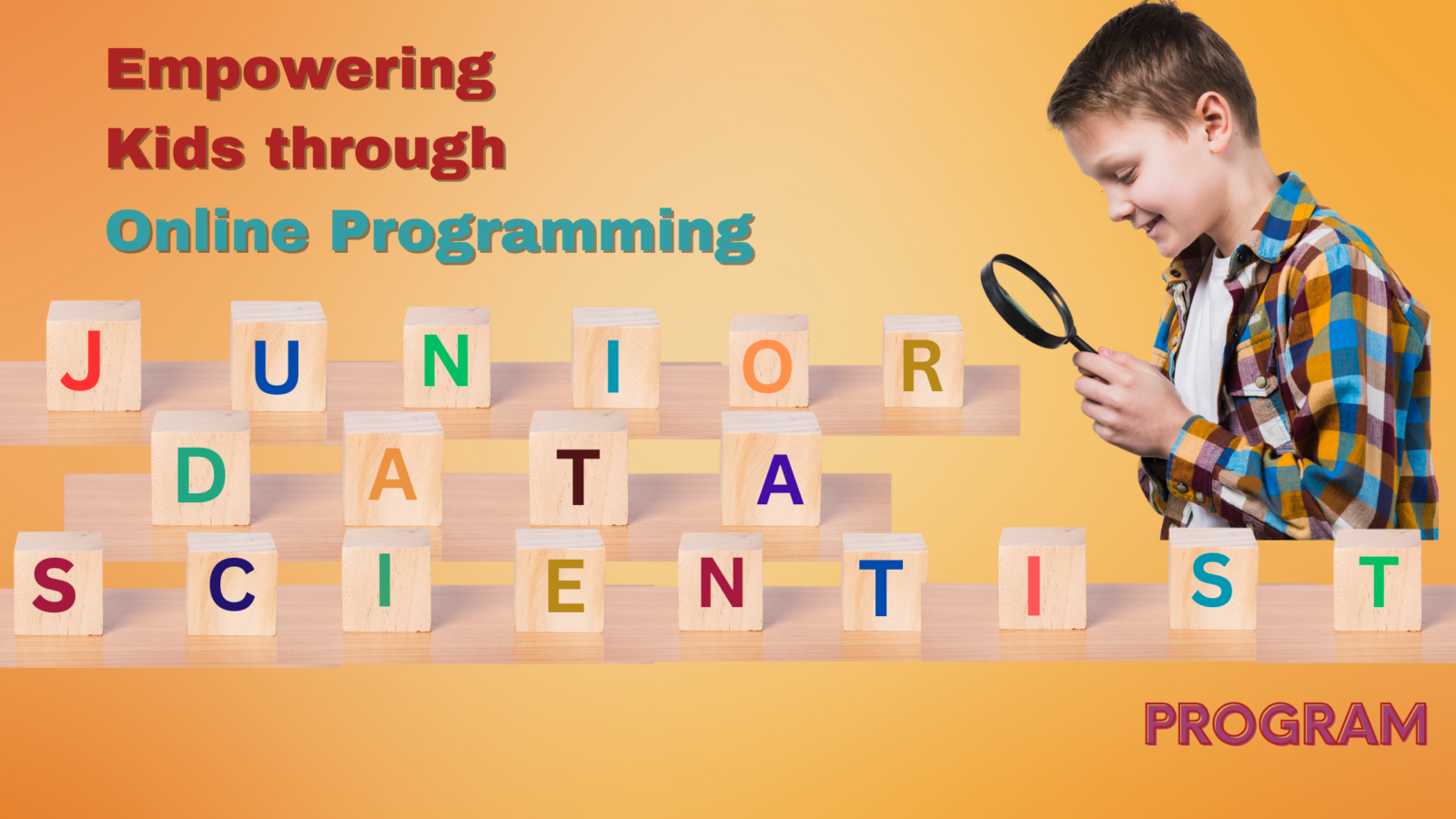Data Science deals with the collection, analysis, and use of data or information to make informed and data-based decisions. From business analytics to weather updates, we are surrounded by massive amounts of data at any given time.
There was a time not long ago when Data Science was only meant for adults to learn. However, in today’s digital and data-driven world, Data Science is gaining popularity among kids and teens too!
Clevered’s Junior Data Scientist Program is a one-of-a-kind online programming course that helps young students transform into young data scientists.
Let’s explore some of the features of this program but before that let’s answer some popular questions that parents have when it comes to teaching their children data science.
What is a Data Science Program for Kids?

Data Science is such a booming field that it is estimated to grow by 36% from 2021 to 2031. From small businesses to government institutes, everyone uses data science.
It may sound intimidating for kids to learn, but data science programs empower kids to develop employable skills and have an edge over others when it comes to analytical thinking. The Data Science Program teaches kids how to use data. Since data or information is available all around us, kids learn how to gather this data, organize it, and then analyze it in a useful manner.
In the Junior Data Scientist Program, kids learn the basics of Data Science first and then master the subject.
Here are some of the skills that kids develop in the Data Science Program-
Recognizing Patterns:

Pattern recognition is the most basic fundamental skill of a data scientist. Through junior data scientist programs, kids learn how to identify various patterns of data and utilize the patterns as per the requirements of the organization.
Analytical Skills:

The Junior Data Scientists program guides kids to develop strong analytical skills to research, examine, and configure data effectively. Children gain the ability to analyze information critically through various methods of data analysis and algorithm development.
Computer Skills:

Another beneficial skill that children learn from junior data scientist programs is proficiency in coding and the use of various data visualization tools. These skills enable them to process and manipulate data efficiently, research complex data structures, categorize patterns in large datasets, and present their research in a visually comprehensible manner.
Communication Skills:

Having good communication is essential for data scientists. They must be able to explain their research and analysis such as complex statistical models to a wide range of audiences, from both technical and non-technical backgrounds. As a result, children develop effective communication skills.
Logical-Thinking Skills:

Data scientists deal with complex and large datasets every day. To develop and design robust frameworks of various statistical models logical thinking is essential. It is also required to identify setbacks during data analysis and model development. When a kid is enrolled on a junior data scientist program, they begin to develop logical thinking which turns into a convenient skill for them later in their professional life.
Math Skills:

Data science and Mathematics go hand-in-hand. The entire process of data analysis depends on implementing various mathematical methods to research, collect, categorise and analyse large datasets. The junior data scientist program teaches various mathematical concepts and methods to children. As a result, children become proficient in their math skills.
Problem-Solving Skills:

Data analysis is not a straightforward process. It includes numerous intricate steps from researching to cleaning data and finally, designing a comprehensible statistical model. Data scientists possess strong problem-solving skills to find innovative ways to handle missing data or optimize statistical models effectively. Hence, children learn how to navigate hurdles effectively and formulate effective solutions in junior data scientist programs.
Conclusion:
A successful data scientist possesses skills such as technical expertise, analytical thinking, and effective computer skills. These qualities not only enable them to navigate the intricacies of data science but also provide strategic solutions within a business or organization.
Hence, children learning data science develop these essential skills that contribute to building their professional profile. These skills also guide them to navigate and overcome hurdles and move forward to achieve their goals.








